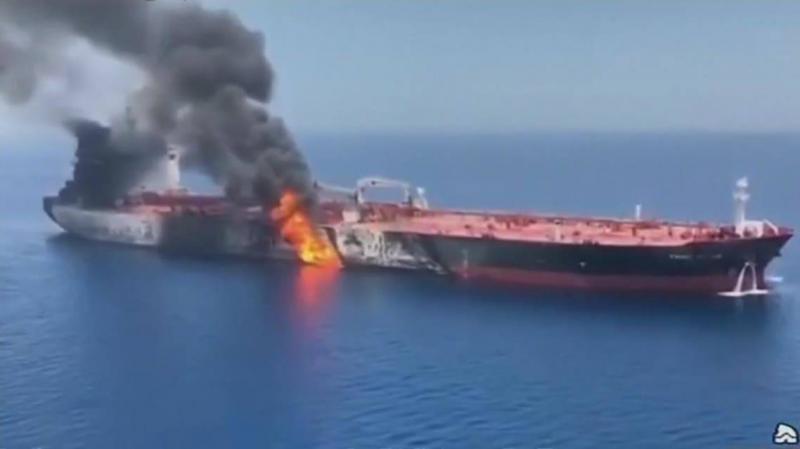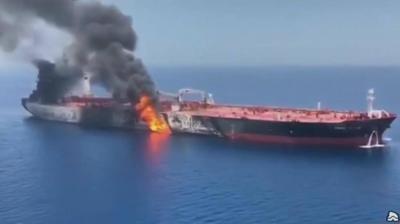Under the title "Foreign Policy: The Conflict Between Israel and Iran Expands Due to Lebanon," the Al-Arabiya website reported that earlier this month, an Iranian tweet and an Israeli one caused a stir in the already turbulent waters of the Mediterranean. On June 26, the Iranian embassy in Lebanon tweeted a vague message alongside a picture of an Iranian ship, stating that Iran does not need U.S. approval to send fuel to Lebanon. The tweet insinuated that the ship was carrying fuel and was en route to Lebanon. Fearing U.S. sanctions, Lebanon's Ministry of Energy quickly denied requesting to import Iranian fuel, but speculation had already spread that an Iranian oil tanker was headed to the port of Beirut.
Subsequently, on July 6, the IntelliNews blog, which focuses on defense and Israeli intelligence issues, tweeted that Iran had sent the Arman 114, an Iranian-flagged ship carrying Iranian crude oil to Lebanon. The tweet stated: "Hezbollah is conducting logistical operations to smuggle Iranian fuel into Lebanon." A few days prior, Hezbollah leader Hassan Nasrallah pledged to import fuel from supportive Iran, portraying himself as a savior for a country suffering from a devastating shortage of this essential commodity.
It appears that these tweets indicate an expansion of the war between Israel and Iran, which has largely been conducted in the shadows until now. For years, Iran and Israel have engaged in mutual attacks on each other's ships in the Mediterranean and beyond. The conflict mainly focused on Iranian oil tankers heading to oil-starved Syria, and now it seems that fighting is spilling over to include Lebanon, which is increasingly on the brink of economic collapse.
**Baniyas, Not Beirut**
Shortly after, the Iranian tanker 114 docked at the port of Baniyas in Syria on June 13. The online service TankerTrackers, which tracks and reports on crude oil shipments, stated that it had been monitoring Arman 114 along with two other ships carrying Iranian crude, confirming that its destination was Baniyas, not Beirut, although the Iranian embassy's tweet appeared to be merely a statement of posture.
The report adds that immediate concerns of escalation between Israel and Iran have been averted, but Israel’s strategy to target Iranian oil tankers remains very active. Likewise, Iran's determination to respond similarly by attacking Israeli commercial ships or ships belonging to U.S. allies in the Gulf has not weakened. Furthermore, the journey of tanker Arman 114 displayed the ease with which Iran challenges U.S. sanctions.
**Disruption of Financial Flows**
Experts indicate that while U.S. sanctions have succeeded in disrupting financial flows through banking channels, they have been largely ineffective in preventing Iran from selling crude at discounted prices for cash. Energy analysts have noted a steady increase in Iranian oil exports since late last year. Under former Prime Minister Benjamin Netanyahu, Israel was accused of attacking dozens of Iranian ships, mostly those carrying fuel to Syria, with some supplying Iranian proxies with weapons, but none were headed to China.
New Israeli Prime Minister Naftali Bennett is said to hold stricter views than his predecessor, believing that Israel should attack Iran when its proxies—Hezbollah or Hamas—carry out any attacks inside Israel. Less than a month after taking office, Iran accused Israel of targeting a nuclear facility in Karaj purportedly producing centrifuges to replace those damaged in Israel's previous covert attacks on the Natanz nuclear facility in Iran.
Many Israeli analysts also believe that Israel’s covert strikes inside Iran and its public airstrikes in Syria on Iranian weapons depots better serve Israel's strategic interests than naval attacks. In the meantime, the people of Lebanon continue to suffer from fuel shortages, and should the maritime war between Israel and Iran escalate, this conflict is likely to persist longer.




